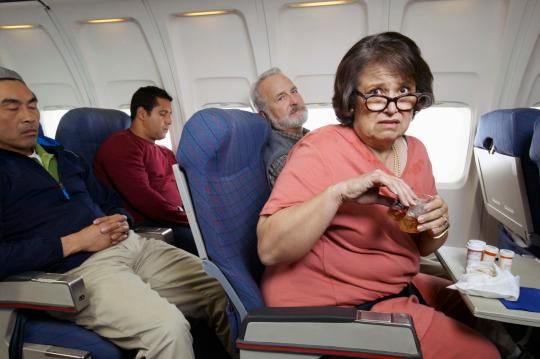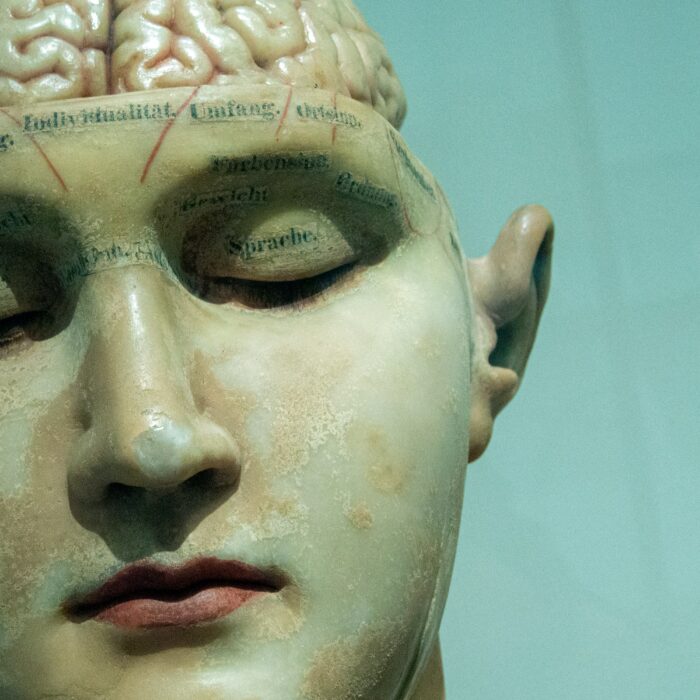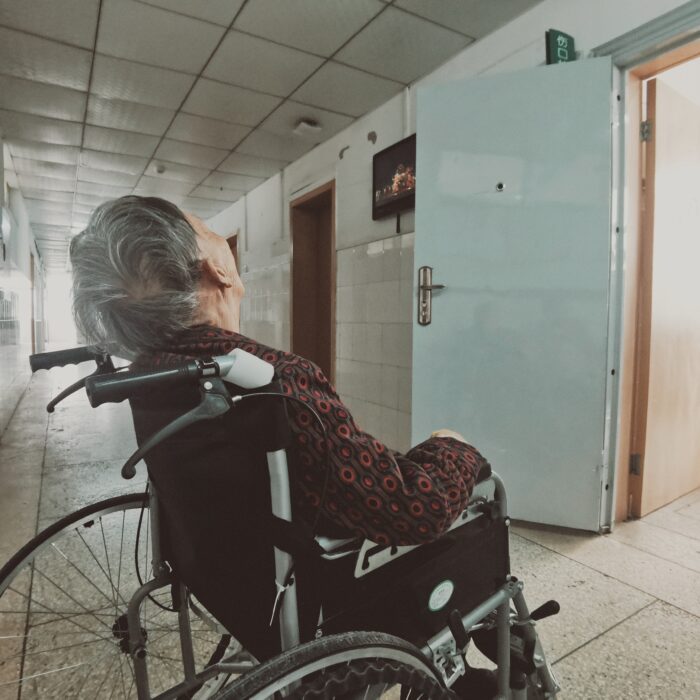You have no items in your cart. Want to get some nice things?
Go shopping
It might never have happened if Catherine hadn’t just turned sixty, his elbow the arrow of death pinching her. Or was it the suspension of flight, the two of them foisted above the laws of the land?
She considers how she will gain dominion over the armrest between them. He is a very large man, and she is slight, her wrists so narrow a man can wrap his fingers around them and almost double back. Slivers of silver bands circle her slender ring finger, and a minuscule silver heart is strung on a short strand around her neck. But her flexed arm reveals an elbow as piercing as any other—a dagger to his sword–and she considers whether circumstances will warrant its strategic use. Her thoughts are intercepted by an image of her father lying on the long, living room couch of her childhood home, clothed only in his boxers, front slit gaping like the mouth of a comatose sleeper as she strains for a glimpse of his secret, only to be rewarded with a fuzzy patch of darkness.
The situation at hand presents an opposing frustration. Her desire is to feel less of this large man who happens, by a twist of fate, to be seated in the center to her aisle on a long, cross-country journey. She’d had her arm on the rest ever since she’d happily landed on the craft and after having stood, politely, to let him take his assignment beside her. But fifteen minutes into the flight, after she’d reached down to grab her purse from beneath the seat in front of her, and after she’d retrieved a tissue and blown her nose, she’d discovered that the big man had commandeered the armrest completely, oblivious to her earlier claim.
The move set her on fire.
Why wasn’t her relationship to the arm rest clear to him—that she had first used it, found comfort in it, and by no means wished to forfeit sovereignty merely because she’d needed to take a momentary break for personal business? At the very least, he might have taken half the bar by a simple 180 degree rotation of his arm. This would have left enough room to support both of their elbows—his left and her right.
As yet, she has not looked him in the eyes, only sensed the bulk of his body when he first shifted into the slim row of seats and now, when she can feel the aliveness of his respiring form beside her.
For months she had contemplated how to celebrate the passage into her sixtieth year, and her desires would alternate between a large, festive gathering of friends and family and a small cluster of intimates conversing around a restaurant table. In the end, she chose flight. As an editor of children’s books, she has grown weary of New York, as the city has come to represent a nagging emptiness that also greets her as she turns the key in her apartment door and enters the comfortably furnished polygon of her living and dining rooms. Even when the cat curls himself around her leg, and even when she pulls him up to her neck and cheek, smiling and cooing silly words like donut and frizzle face, she imagines herself driving on a freeway or walking along the beach in Santa Monica, stopping midday at a seaside joint for fish tacos.
She had asked an old friend, also an editor, if she could stay at her place in West Hollywood for a week, and the friend had suggested that they take a trip for a few days, up to Monterey. Driving and walking, sun and sky—these would be the antidotes to her uneasiness and a way to mark the milestone obliquely, without fanfare.
While Catherine has been lost in thought, the man has unfurled a newspaper, and again, she has missed her chance to commandeer the disputed territory. Now his arms straddle both rests, and the newspaper and his hand verge on the airspace defined by her leg. This triggers a swirling heat at the center of her chest that radiates north and south toward her neck and knees until she is forced to loosen her scarf and unbutton her cardigan.
Gathering her defenses and her senses, she summons a strategy—watching and waiting. She will watch him diligently, neither allowing her thoughts to distract her, nor the silent films reeling on small screens at the cabin’s ceiling, nor the woman pacing down the aisle, jostling a round, wide-eyed baby. All the passengers in window seats have pulled the plastic shades, the better to watch the little TVs or nap.
At least he has folded the paper in half. But the way it has blanketed the tight air space in front of his girth makes her feel even more claustrophobic. He is consciously finding ways to expand.
He is turning the pages with his right hand, his left limb pasted to the ledge between them.
She knows she must distract herself, and she considers taking the little yellow pill she often swallows to relax before going to bed. But she is afraid she will arrive at the airport too woozy to express enthusiasm.
Then it hits her. Hasn’t she come to a moment in her life when she should be able to say anything? Isn’t it time to address this man’s insensitivities? After this interminable flight, she will never see him again. What more can she do with life now than to speak up before words escape her?
“Your arm,” she says forcefully to her folded tray table.
The large man lowers the paper, swivels his head, each elbow glued to its cradle. He raises his eyebrows, but does not seem to think that the fragment she has uttered is worthy of a verbal response.
“Pardon me,” she says, “but I thought it was very clear that I was using the arm rest first.”
Only now does the man let the paper fall, and she imagines he looks at her as if they were standing, and the differences in their heights and girths were enough to explain who had more privilege. Both of her hands could fit within one of his palms. Now she sees his eyes. They are grey and small for his face, a milky film obscuring them. She smoothes her blackened hair from her ears to her neck, wispier now, she thinks, than last year—thin and straggly compared to the thicker mane of her youth.
“No,” he says, “it was not clear. Not clear at all.”
He is unruffled. He has given her plea no consideration, no weight.
“Well, I am telling you now,” she says, gathering her publication-review-board voice. “It is only fair that I have the arm rest since my arm was on it first.”
The man clears his throat. He removes his reading glasses. She can see the pink indentations around his nose where the rims of the spectacles have pressed his puffy skin.
“I am a large man,” he says. “Obviously, you don’t need as much space as I do.”
Ah ha! There it is.
She has lived a long time, and the situation is not new to her. Few have said it so directly. She is indeed a small woman, and he is not the first person to attempt to relegate her to an inferior status because of it.
“If you think you can simply take over the arm rest because you are larger, then you have another thing coming!” This time she speaks toward the man’s left jowl and then to his thick neck, her words muffled by his bulk.
“Madam,” he says, “you’re shouting at me. In a moment I’ll have to call the stewardess.” His composure intact, the man never lifts his arms from their resting places.
Madam
How did it happen? Suddenly, no longer Miss. That very morning, she’d looked at her legs in the long bathroom mirror, and concluded that they’d begun to look more like stumps.
“I am not shouting,” she says in a strained whisper.
The man has gone back to reading.
“Do not ignore me!”
He does not respond.
Catherine wants to shout his name. But he is still only the man with immovable wings.
“I have a right to put my arms here. You cannot force me to move.” He speaks to her lap, head lowered at the same angle required to take in the less newsworthy articles at the bottom of the paper’s page.
Hasn’t she done most things by the force of her will? She left a cloying mother to attend college and years later, a short-lived marriage to a bullish man. She has a respectable reputation in her field, having taken on edgy projects like a picture book on the Big Bang Theory, as well as plenty of moneymakers. She can line edit to perfection, and she has never overpaid for a book. What will it take to move this man’s arm?
“Maybe I will be the one to call the flight attendant!”
“You can,” he counters, his disaffected response strangely prompting her eyes to fill. She is not, in general, a crier, and the appearance of tears confuses her. She turns her head swiftly toward the narrow, vacant aisle, one tear launched sideways.
She recoups the tissue she’d slipped into the pocket of her black slacks, and dabs the corner of each eye, hoping that the waterproof mascara remains true to its reputation. Then she feels chilled, arranges her scarf on her neck, and she pictures the infuriated face of one of the middle-aged secretaries in her office, who often complains that the recycling air is either too hot or too cold. And her cry. Because I have no estrogen!
Catherine’s heart flutters, the palms of her hands cool and damp. She lays them on her lap, one on each leg, and she looks down at their delicacy, at the blue veins that have grown more prominent as her skin has stretched and thinned, at the brown, egg-shaped age spot above her right ring finger like a splatter of paint. They are small hands, shriveling, she thinks. At the end of her life, her mother’s face looked like a girl’s in its passivity and bewilderment. But her hands—skin so thinned there were bruises and blood clots everywhere.
“I am not going to fight with you,” she says to her hands, “though I think you might like that very much.”
“Do what you wish,” the man says from behind the newspaper.
Of course she will do what she wishes. Yet she still wants him to look at her, a thought she can’t bear to have.
Catherine hears the paper rustle and shift. At first, she does not look. She allows some time to pass, not wanting it to appear that his movements interest her. Finally, she pivots her head to the right just enough to see that the man has folded the paper in half and then in half again, so that it is a small bundle tucked into the mesh pocket in the seat in front of him. His elbows, once more, appropriate the ledge between them. His head is cocked toward the window, eyes closed, a quiet snore like a cat’s purring. But what is most arresting, what greets her as she shifts her gaze downward, is that the man no longer wears trousers, just sky blue boxer shorts.
Because of the way he has contorted in his seat, the slit in the center is fully agape. There, for anyone who chooses to glare, his most private entity, curled like a small snail. It is solemn, she thinks, unintimidating, thoughtful, like a tiny section of brain.
Then she remembers a boyfriend she’d had years before. He’d had trouble staying hard, and he’d told her he’d gone home and yelled at his penis, told it to behave.
Why would anyone have done that, she thinks, to such a delicate, mysterious thing?
She begins to sob, reaching for another tissue from her purse, cupping it over her nose and mouth. I was so afraid of him! She caresses her cheek, as if she can still feel her father’s rough, unshaven face. This is all it was!
Then it happens, just as she feels the air pressure shift in her ears, the man’s elbow falls from the ledge.
She does not move at first, imagining that a lunge for the ledge could set off an alarm or an attack from the comatose man. After a moment, slowly, she lowers her arm so that now, both arms are supported as if in a regal balance.
But what she imagined would feel like triumph, feels like defeat. She sits stoically, embarking on a breathing technique she learned from a relaxation tape: Breathe in for a count of four, hold the breath for seven, breathe out for a count of eight. Each time she exhales, her chest shudders, and it reminds her of a dog she once owned and loved who’d panted and stood the entire last day of her life, her lungs obstructed by a tumor.
Before long, she is roused. In the end, a woman of action. She turns toward the man, lifts her hands from the ledge, and delicately pulls the two finished edges of the gaping shorts toward one another as if drawing the curtains on the sun in a baby’s room.
Hands in her lap, she is strangely satisfied to have them there, just as the landing gear release, a soft thud in the belly of the plane. Almost there.
Passengers lift stiff shades, their laps flooded with light. The ground comes into focus—row houses, tiny cars on a six-lane highway, an undulating line at the shore. Very soon the tarmac will zoom in quickly as if they might crash. But they won’t.

About Robin Messing
My short story “Drive-by,” published by Drunken Boat, was a 2011 nominee for a Pushcart Prize. My novel, Serpent in the Garden of Dreams, was published in May 2008 by The Permanent Press and was endorsed by Phillip Lopate, Joan Silber, Chuck Wachtel, and Jonathan Baumbach. I have contributed vocal tracks to Cornelius Eady’s double CD Book of Hooks, 2013 and the EP Seven Songs, 2014.




